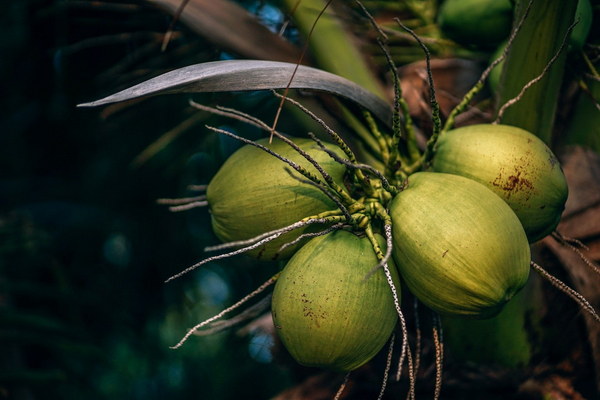Summer Wellness Nourishing with Herbs and Foods for Complementary Medicine
As the sun begins to shine brightly and temperatures soar, summer arrives with its unique set of challenges and opportunities for health. It's a time when the body's energy shifts, and it's important to adapt our diet and lifestyle to maintain balance. One effective way to support summer health is through the practice of complementary medicine, specifically focusing on herbs and foods that nourish and rejuvenate. This article explores the concept of summer nourishment, delving into the benefits of herbal and food-based remedies that can help you thrive during the warmer months.
Understanding Summer Nourishment
Summer nourishment, also known as yinyang in traditional Chinese medicine, involves balancing the body's yin and yang energies. Yin represents cool, moist, and nourishing qualities, while yang embodies heat, activity, and energy. During summer, the yang aspect is more prominent, which can lead to excessive heat and dehydration. To counteract this, it's essential to incorporate cooling, hydrating, and nourishing foods and herbs into your diet.
Herbal Remedies for Summer Health
Herbs play a significant role in summer nourishment, offering natural remedies to balance the body's energy and support overall health. Here are some common summer herbs:
1. Peppermint (Mentha × piperita): Known for its cooling properties, peppermint is excellent for soothing digestion and reducing inflammation. It can be consumed as tea or added to salads and smoothies.
2. Lemon Balm (Melissa officinalis): Lemon balm is a calming herb that can help with stress and anxiety. It also has antiviral and antibacterial properties, making it beneficial for the immune system.
3. Honeybush (Cyclopia intermedia): This South African herb is rich in antioxidants and has a caffeine-free, calming effect on the nervous system. It makes a delicious herbal tea.
4. Dandelion (Taraxacum officinale): A powerful liver cleanser, dandelion helps to flush out toxins and improve digestion. It can be brewed as a tea or added to salads.
5. Chamomile (Matricaria recutita): Chamomile is renowned for its calming and soothing properties, making it an excellent choice for bedtime tea or as a compress for skin irritations.
Food-Based Remedies for Summer Health
In addition to herbs, certain foods can also contribute to summer nourishment:
1. Cucumbers: High in water content, cucumbers help to keep the body hydrated and cool. They can be eaten raw, added to salads, or blended into smoothies.
2. Watermelon: Rich in vitamins A and C, as well as amino acids, watermelon helps to replenish electrolytes and maintain hydration.
3. Mint: Mint is a cooling herb that can be used in teas, salads, and smoothies. It can also be applied topically to soothe skin irritations.
4. Pineapple: Pineapple contains bromelain, an enzyme that helps to digest proteins and reduce inflammation. It's perfect for a refreshing summer snack or dessert.
5. Green Leafy Vegetables: Dark leafy greens, such as spinach, kale, and Swiss chard, provide essential nutrients, including iron, calcium, and magnesium. They help to build a strong immune system and maintain healthy blood levels.
Practical Tips for Summer Nourishment
To make the most of summer nourishment, consider the following tips:
- Stay hydrated by drinking plenty of water and herbal teas.
- Incorporate cooling foods and herbs into your meals and snacks.

- Limit spicy and heavy foods that can exacerbate heat and dehydration.
- Practice mindfulness and relaxation techniques to maintain balance during the summer months.
By embracing the principles of summer nourishment, you can support your body's natural balance and enjoy a healthier, more vibrant summer. Remember, the key is to listen to your body and adjust your diet and lifestyle accordingly. With the right approach, you can thrive during the summer season and build a foundation for year-round well-being.









